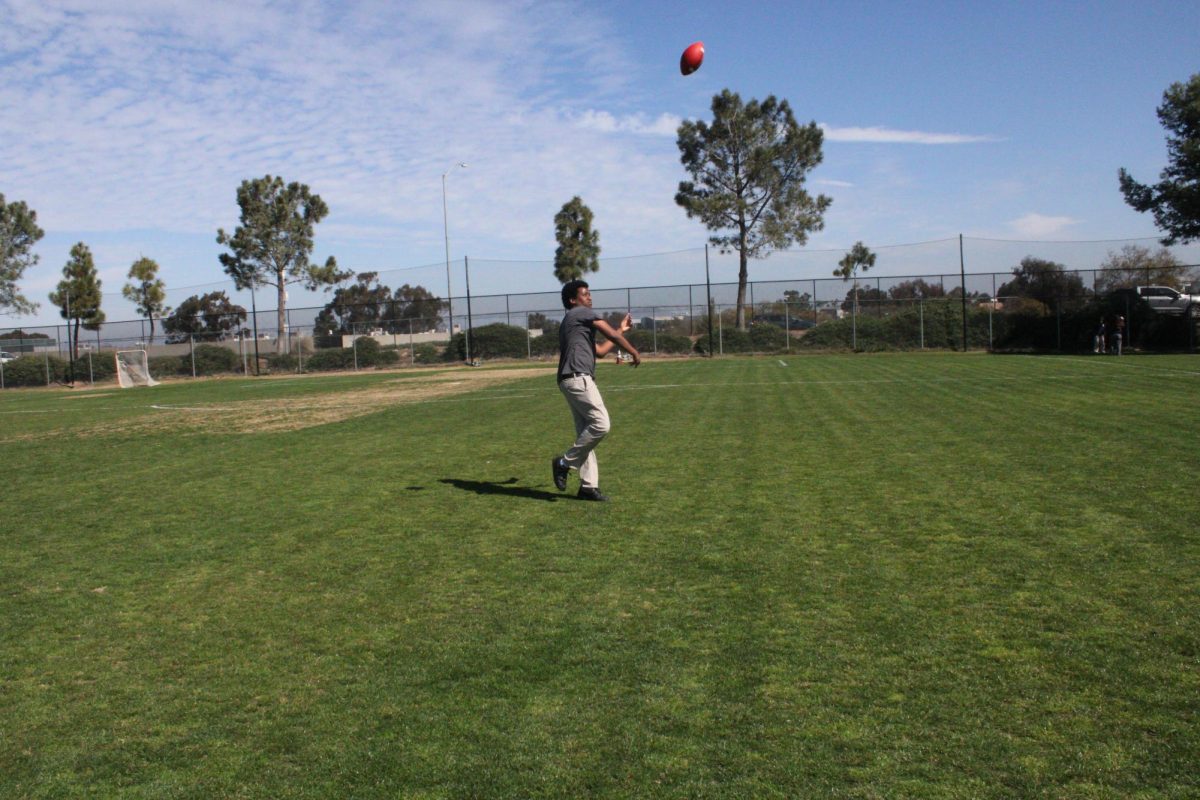The United States is a very diverse country. Various cultures, even sports, are played and recognized. Amongst all the sports here, one remains on top as the most popular: football. Football has been the top sport in the U.S. since 1972. Yet despite its immense popularity, I recommend that kids stay away from it.
First and foremost, football is an intense contact sport. Players are running at fast speeds and tackling each other, which opens up opportunities for potential injuries. The obvious injuries are broken or sprained bones and bruises; however more serious ones can also occur. According to the article “Should Parents Let Their Child Play Football? Weighing the Pros and Cons,” published by Children’s Hospital of Philadelphia, as kids are still developing, damage to growth plates can be very severe and costly to the child. Growth plates are areas with tissue at the ends of bones, which determines the length and shape of them. Damage to them can cause incorrect growth as a result. The NIH (National Institutes of Health) states in their article “Growth Plate Injuries” the injury can also cause continuous pain, swelling in the bones, alters how limbs bend, and limits ability to bear weight.
All these effects will seriously harm children and drastically change how the child’s lifestyle and how they maneuver through it. Common injuries in football such as fractures can often lead to these growth plate injuries, and can most likely occur when a child is met with extreme force and contact to a bone which is a basic premise in football. To avoid that, it is best to keep children out of contact sports, like football, at young ages.
Secondly, children should restrain from playing football because it can negatively affect their mental health. “Football and the Brain: Lifestyle Impacts Health,” written by Orna Feldman, a science writer, and published by Harvard Medical School, suggests an undeniable link between football, brain trauma, Alzheimer’s Disease, and CTE. The mental illnesses can cause a variety of symptoms, most commonly being memory loss, slurred speech, and poor judgement. These effects would be detrimental to the livelihood of a child. Brain injuries are very serious and unfortunate, which is why children should be removed from paths early in life that could potentially lead to the injury.
While I am against young kids playing football, I do not disapprove of other non-contact sports, as sports do have their benefits and not just cons. In the article “Youth Sports Facts: Benefits” by the Project Play Organization, playing sports helps maintain healthy bones, muscles, and joints. Not only that, but it also assists in controlling body weight. One final benefit is that sports delays the development of high blood pressure. Youth can gain all these benefits without playing contact football as well. Children also have alternatives such as flag football and two hand touch football, with the additional benefit of being less expensive.
Sports are a great way to improve physical health and should not be entirely removed from children. Though, some are more dangerous than others, having more risks yet the same rewards and health benefits.
Children and parents should look for alternatives to tackle football until the child or family is completely ready to handle the sport’s full intensity.
Jones, Jeffrey M. “Football Retains Dominant Position as Favorite U.S. Sport.” Gallup.com, 7 Feb. 2024, news.gallup.com/poll/610046/football-retains-dominant-position-favorite-sport.aspx.
Nancy Garrick, Deputy Director. “Growth Plate Injuries.” National Institute of Arthritis and Musculoskeletal and Skin Diseases, 5 Apr. 2017, www.niams.nih.gov/health-topics/growth-plate-injuries.
Philadelphia, The Children’s Hospital of. “Should Parents Let Their Child Play Football? Weighing the Pros and Cons.” Www.chop.edu, 21 Mar. 2024, www.chop.edu/news/should-parents-let-their-child-play-football-weighing-pros-and-cons.
Project Play. “Youth Sports Facts: Benefits.” Project Play, ASPEN INSTITUTE, 2023, projectplay.org/youth-sports/facts/benefits.
Feldman, Orna. “Football and the Brain: Lifestyle Impacts Health.” Hms.harvard.edu, 2017, hms.harvard.edu/news-events/publications-archive/brain/football-brain-lifestyle-impacts-health







